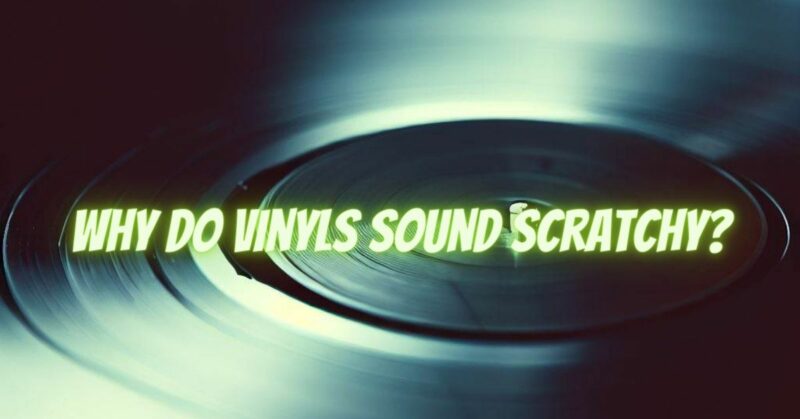Vinyl records are known for their warm and rich sound, but occasionally, you may encounter scratchy or noisy playback. This article aims to explore the reasons behind this phenomenon and shed light on why vinyl records may sometimes sound scratchy. Understanding these factors can help you identify and address issues to enhance your listening experience.
- Surface Imperfections:
One common reason for scratchy sounds on vinyl records is surface imperfections. Over time, records can accumulate dust, dirt, and microscopic debris that settle into the grooves. When the stylus passes over these imperfections, it can cause pops, clicks, and crackling noises. Regular cleaning of records using proper cleaning techniques and tools can help reduce surface imperfections and improve playback quality.
- Record Wear and Damage:
Vinyl records can experience wear and damage due to repeated use, mishandling, or improper storage. Scratches, scuffs, and groove damage can result in scratchy or distorted sound reproduction. It’s important to handle records with care, store them in protective sleeves, and use a clean and aligned stylus to minimize wear and potential damage. Avoid using worn-out or damaged needles, as they can exacerbate the problem.
- Stylus Condition:
The condition of the stylus (needle) is crucial for optimal playback quality. A worn or damaged stylus can cause increased friction and improper tracking, leading to scratchy sounds. Regular maintenance and replacement of the stylus according to manufacturer recommendations are essential to ensure accurate tracking and minimize distortion. Additionally, proper alignment and tracking force adjustments are necessary for optimal performance.
- Dust and Static:
Dust and static electricity are notorious culprits for introducing unwanted noise on vinyl records. Dust particles can cause friction and interfere with the stylus’s smooth movement, resulting in scratchy sounds. Static electricity buildup can attract dust and cause crackling noises during playback. Using anti-static brushes, record cleaning solutions, and anti-static inner sleeves can help mitigate these issues and preserve the sound quality.
- Equipment Setup:
The setup of your turntable and audio equipment can also impact the sound quality. Poorly calibrated tonearms, incorrect tracking force, or inadequate grounding can introduce unwanted noise and affect the overall fidelity of the playback. Ensure your turntable is properly set up according to the manufacturer’s instructions or seek professional assistance for fine-tuning if needed.
Conclusion:
While vinyl records are known for their superior sound quality, scratchy playback can occur due to various factors. Surface imperfections, record wear, stylus condition, dust, static, and equipment setup can all contribute to the scratchy sound. By adopting proper handling and cleaning practices, maintaining a well-maintained stylus, and ensuring a properly calibrated setup, you can minimize scratchy sounds and enjoy the full potential of your vinyl collection. Remember that each record is unique, and occasional minor imperfections are part of the vinyl experience, adding character to the music.


